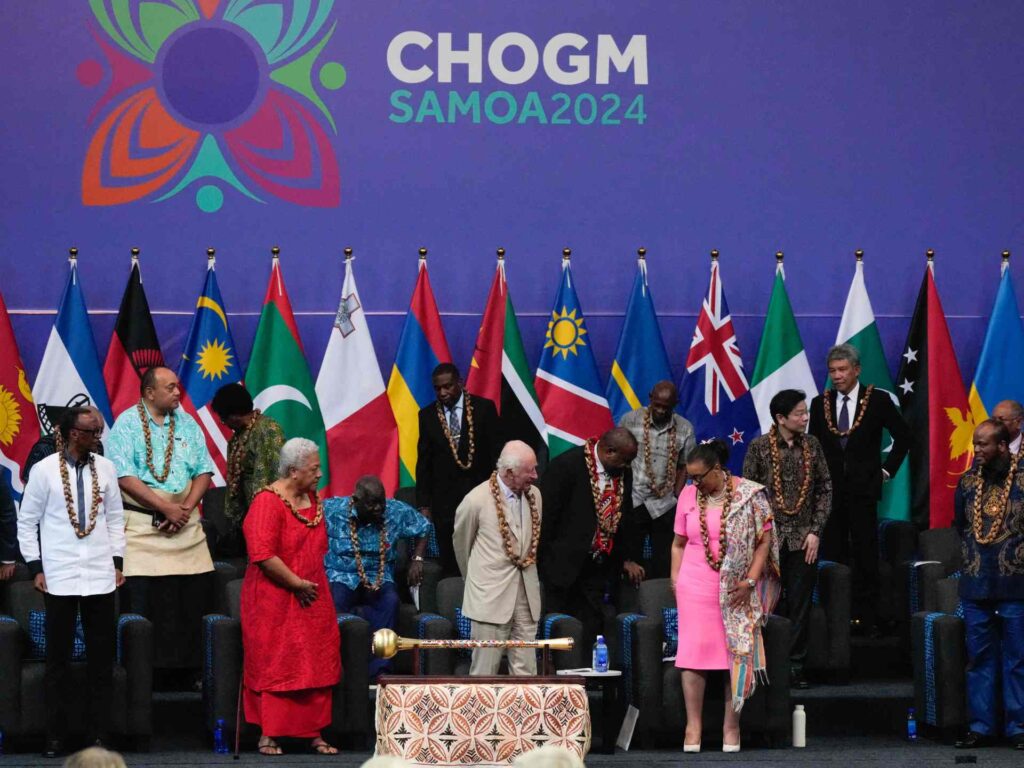Commonwealth ought to lead the dialogue on slavery reparations | Slavery

As a brand new secretary-general assumes management of the Commonwealth, it appears de rigueur in some circles to dismiss the organisation as a relic of a bygone period. To talk of it with any seriousness locations one in a social pillory, the face upturned for pelting with the fruits of modernity.
Nonetheless, counterarguments exist. Nations wouldn’t be lining as much as be a part of if the Commonwealth have been certainly an anachronism. Shared bonds of language, authorized codes and schooling methods make commerce cheaper between member nations. If an English-speaking democratic affiliation of countries didn’t exist, one would certainly be created.
In the end, nonetheless, the Commonwealth right now struggles to justify itself to wider audiences.
To make itself related, the Commonwealth should confront, not duck, the important questions it’s ready-made to handle. Forty years in the past, the organisation confronted an existential query of relations with apartheid South Africa. As we speak it should sort out the difficulty of reparations for the most important compelled migration in human historical past: the transatlantic slave commerce.
Final 12 months, on the biennial Commonwealth summit in Samoa, the ultimate communique addressed the difficulty of reparations, stating: “The time has come for a significant, truthful, and respectful dialog in direction of forging a standard future primarily based on fairness.”
It’s no secret that assist for the Commonwealth has historically – although not solely – come from those that reside on the proper. In response to the communique, some beforehand supportive voices within the media sounded the bugle for the UK’s exit – an echo of the lamentable response a technology in the past when some referred to as for continued relations with Pretoria towards all of the info that made apartheid unpardonable.
It needn’t be this manner. Opening the dialog on reparations wouldn’t solely renew the organisation’s relevance; if approached with care, it may revitalise the Commonwealth itself, offering a shared unity of function and new frequent tasks round which to rally.
Nonetheless, for a lot of, the thought of reparations is troublesome to fathom. The crime is huge in scale, spans centuries, and is geographically diffuse. Who ought to pay? To whom? People, communities, governments? But no technical obstacles to redress ought to justify ignoring one in every of humanity’s best crimes.
The kidnapping of tens of thousands and thousands of younger Africans – at a time when the continent’s inhabitants hovered round 100 million – inflicted materials hurt that endures right now. In the meantime, Britain and different European nations amassed wealth and energy from the commerce. This previous continues to form our current.
However it’s maybe the historic dimension that causes many to recoil: why ought to we pay for the crimes of our forebears, a number of generations eliminated? To ease resistance, we should abandon zero-sum pondering.
Funds and cooperation might be channelled into new joint ventures between Britain and different Commonwealth international locations the place either side profit: investments and programmes that create shared, long-term worth, designed to outlast political cycles and altering administrations. These might be public, non-public, or each – however distinct from different initiatives already in existence.
Infrastructure needs to be a precedence, driving financial growth, creating jobs, and connecting the continent. Considered one of Africa’s defining challenges is its lack of intra-continental commerce – a legacy of colonial-era useful resource extraction that funnelled uncooked supplies out to the West fairly than cultivating regional alternate. A free commerce settlement between Africa’s 54 nations is beneath solution to scale back tariffs and unlock financial potential throughout the continent, however with out materials connectivity – roads, railways, ports – the transformative influence might be blunted.
Second, debt forgiveness needs to be up for dialogue. No Western funds are required up entrance, solely a write-down off authorities books. Debt is corroding many African nations, exacerbated by a world monetary structure that favours Western pursuits and penalises creating nations. That is no accident: banking, insurance coverage, and capital markets have been formed by the earnings and financial constructions constructed through the period of slavery.
As we speak, many African nations spend extra on debt repayments than on schooling and healthcare mixed. Fiscal house is required not solely to fund growth; it’s important for constructing local weather resilience within the continent least accountable but one of many hardest hit by rising temperatures.
What is definite is that calls to go away the Commonwealth won’t silence the dialog on reparations. It was a central theme on the African Union summit in February, and the Caribbean Group has been actively pursuing the difficulty for over a decade. As an alternative of retreating, why not lead – simply because the Commonwealth did with collective sanctions isolating apartheid South Africa? No different international physique, unrestricted by area, is facilitating severe dialogue on possible, practicable reparatory justice between developed and creating nations. As soon as we transfer previous the noise, a framework for reparations may be crafted that fosters mutual profit fairly than battle.
Africa holds immense alternative. Its markets are set to surge, pushed by a demographic growth that may see one in 4 working-age folks worldwide residing on the continent by 2050. It’s wealthy within the vital minerals that may energy the vitality transition and outline the economies of the long run. To totally seize this chance, the previous needs to be reckoned with and leveraged to create joint worth.
The Commonwealth is usually dismissed as a speaking store. However on this concern, speaking is precisely what is required.
The views expressed on this article are the creator’s personal and don’t essentially replicate Al Jazeera’s editorial stance.





